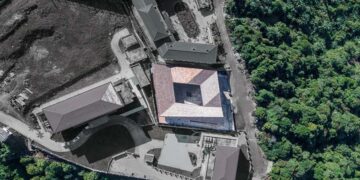Wall Street Concerns over Tesla’s Q1 Deliveries

Wall Street is growing apprehensive about Tesla’s first-quarter deliveries, with several prominent analysts slashing their estimates for the electric vehicle (EV) maker’s performance.
Analyst Predictions
Morgan Stanley, Wedbush Securities, and Deutsche Bank are among the firms forecasting a decline in Tesla’s first-quarter deliveries. Some analysts are even bracing for Tesla’s first year-on-year sales decline since 2020.
Delivery Estimates
According to analysts’ consensus, the number of deliveries for Q1 is expected to be around 477,000, as per UBS. However, UBS itself has lowered its estimate to 432,000. Another survey of analysts conducted by Bloomberg reveals an average delivery estimate of 453,964 vehicles for Q1 — indicating a decrease of over 6% from the previous quarter.
Analyst Adjustments
Emmanuel Rosner of Deutsche Bank has reduced his delivery forecast from 427,000 deliveries to 414,000. Wedbush analysts have described Q1 deliveries as “a nightmare quarter for Tesla,” attributing supply issues such as factory downtimes and the Berlin fire as contributing factors.
Challenges Faced by Tesla
Tesla has encountered significant challenges in recent months, with its stock declining by approximately 30% since the beginning of the year. The company has also been downgraded by multiple Wall Street firms. Daniel Ives, managing director at Wedbush Securities, described Tesla’s situation as a “code red situation” and highlighted struggles in China regarding demand.
Competition and Market Dynamics
Tesla faces tough competition and slowing demand in China, where it lost its title as the world’s top seller of EVs to Chinese firm BYD in January. A price war between the two companies ensued to attract consumers.
Marketing Efforts
As investors closely monitor Tesla’s delivery figures, CEO Elon Musk has intensified the company’s marketing of its autonomous driving capabilities. Tesla recently initiated a free month-long trial of its Full Self-Driving software, which is offered as a $12,000 add-on or for $199 a month. This move aims to boost Tesla’s profit margins and enhance the software’s performance.





















